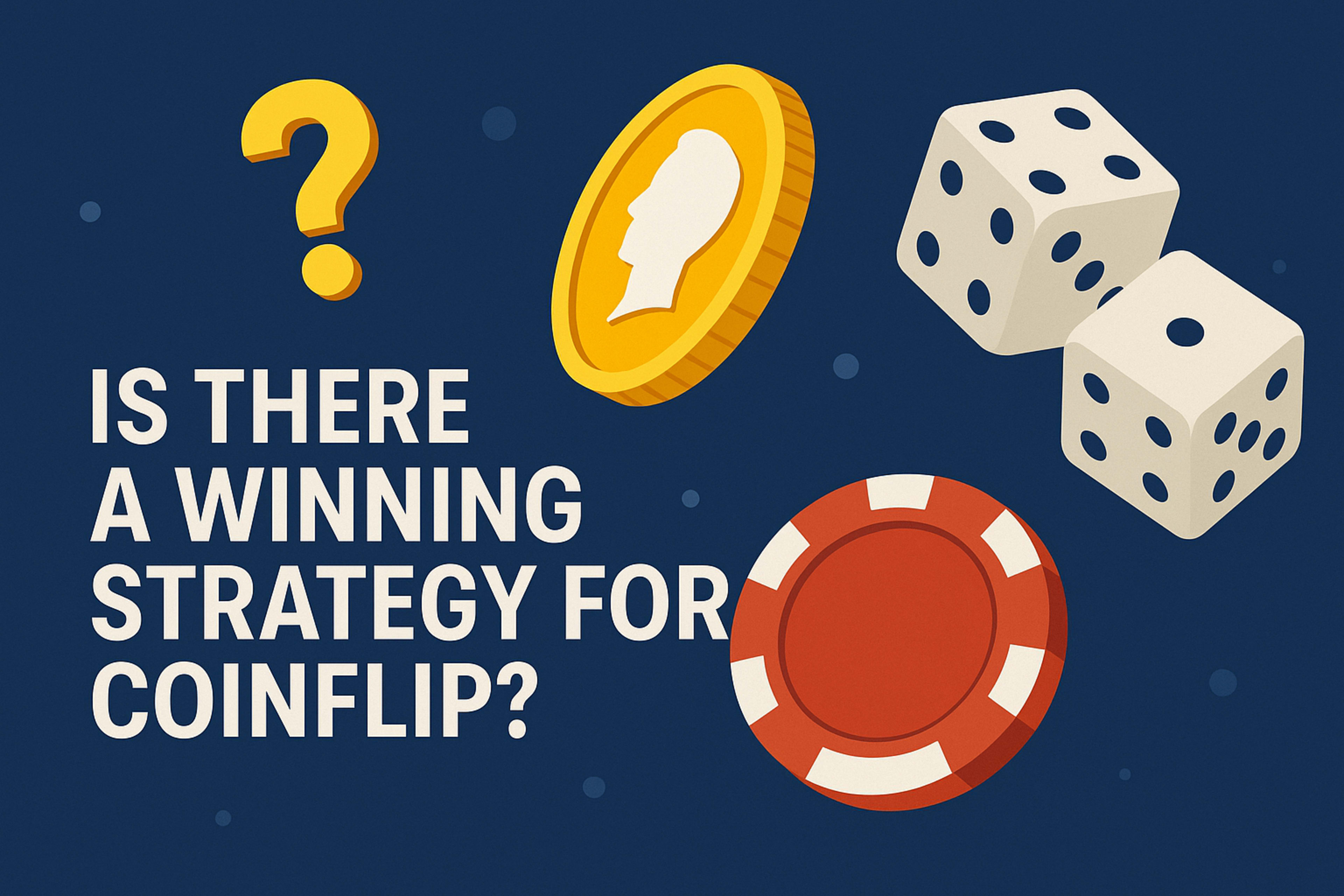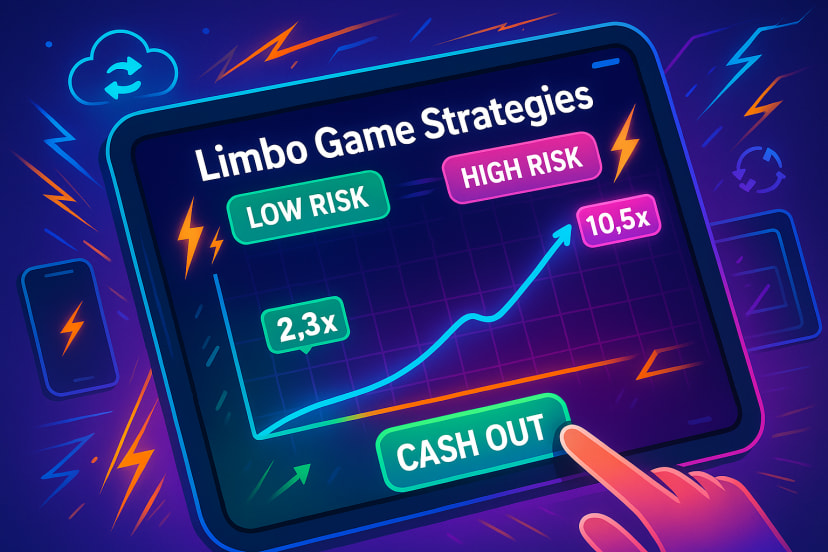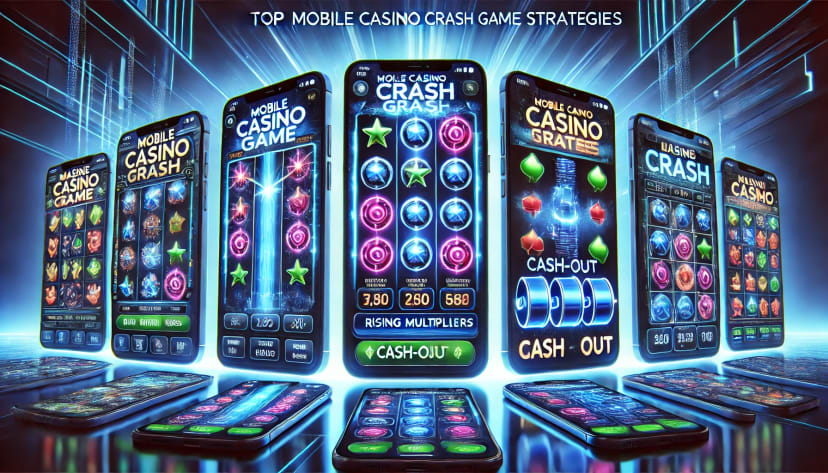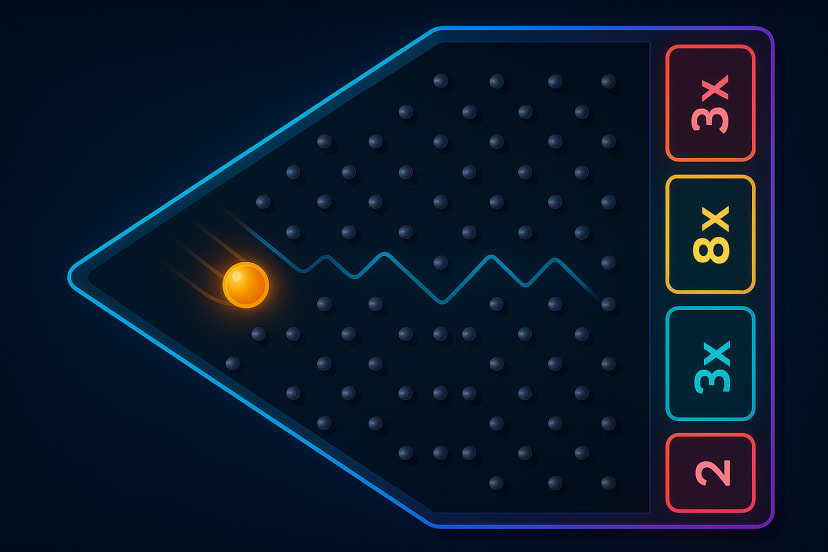Is There a Winning Strategy for CoinFlip?

When it comes to instant games, few are as deceptively simple as CoinFlip. Players often wonder if there's a secret strategy that can tip the odds in their favor. The short answer? No. CoinFlip games are pure games of chance, but understanding why requires diving into the mathematics of randomness and the psychology behind our belief in patterns.
CoinFlip represents one of the most fundamental examples of probability in instant games. Despite its simplicity, many players fall victim to common misconceptions about how randomness works, leading them to believe they can develop winning strategies where none exist.
The Mathematics of True Randomness
At its core, a fair coin flip has an expected value of zero for any betting strategy. This means that over time, you'll neither gain nor lose money on average – excluding any house edge that instant game providers might include.
Each coin flip maintains statistical independence from previous flips. This fundamental principle means that if you've just witnessed five heads in a row, the probability of the next flip being heads remains exactly 50%. The coin has no memory of previous outcomes, and each flip starts fresh with identical odds.
The expected value calculation is straightforward: if you bet ₦1 on heads with a 50% chance of winning ₦1 and a 50% chance of losing ₦1, your expected return is (0.5 × ₦1) + (0.5 × -₦1) = ₦0. No matter how you adjust your betting amounts or patterns, this mathematical reality remains unchanged.
Common Strategy Myths Debunked
The Martingale System
One of the most popular misconceptions involves the Martingale betting system, where players double their bet after each loss. Proponents argue this guarantees eventual profit since you'll eventually win and recover all losses plus your original bet.
However, this strategy fails for several reasons:
- Bankroll limitations: You need infinite money to guarantee success
- Table limits: Most instant games have maximum bet restrictions
- Exponential growth: Losses compound rapidly (1, 2, 4, 8, 16, 32...)
Pattern Recognition Fallacies
Many players believe they can identify "hot" or "cold" streaks in CoinFlip instant games. This bias illusion stems from our brain's natural tendency to find patterns even in random data. The truth is that apparent patterns in coin flips are simply statistical noise – random clustering that our minds interpret as meaningful.
The Gambler's Fallacy
Perhaps the most pervasive myth is the gambler's fallacy – the belief that past results influence future outcomes. If heads appears five times consecutively, many players assume tails is "due" to appear. This thinking completely ignores the principle of statistical independence that governs each flip.
The Psychology Behind Strategy Beliefs
Understanding why players believe in CoinFlip strategies reveals fascinating insights into human psychology. Our brains evolved to recognize patterns as a survival mechanism, but this same trait works against us in truly random scenarios.
The bias illusion manifests in several ways:
- Confirmation bias: Remembering wins while forgetting losses
- Hot-hand fallacy: Believing winning streaks will continue
- Clustering illusion: Seeing meaningful patterns in random sequences
These psychological tendencies make players feel like they're developing expertise in what is fundamentally a game of pure chance. The dopamine release from occasional wins reinforces these false beliefs, creating a cycle where players become increasingly confident in non-existent strategies.
What Instant Game Providers Don't Always Emphasize
While instant games like CoinFlip are marketed as entertainment, providers rarely emphasize the mathematical impossibility of long-term winning strategies. Understanding the house edge – the small percentage that ensures the house always wins over time – is crucial for players.
Most CoinFlip instant games don't offer true 50-50 odds. Instead, they might pay out 1.98
on winning bets rather than 2, creating a house edge of approximately 1%. This seemingly small difference dramatically impacts the expected value, making it negative for players over time.
These strategies of house edge often apply to other instant games such as Plinko, Crash or Mines.
The Only "Strategy" That Works
If there's any strategy for CoinFlip instant games, it's understanding that no strategy exists for beating the odds. The most rational approach involves:
- Bankroll management: Only play with money you can afford to lose completely. Set strict limits and stick to them regardless of short-term outcomes.
- Entertainment value: Treat CoinFlip games as paid entertainment rather than investment opportunities. The cost of playing should be viewed like buying a movie ticket – you're paying for the experience, not expecting returns.
- Time limits: Set specific time boundaries for play sessions. The longer you play, the more likely you are to experience the negative expected value of the game.
- Understanding randomness: Accept that wins and losses will occur in seemingly meaningful patterns that are actually just statistical noise.
Conclusion
CoinFlip instant games offer pure entertainment value, but no legitimate winning strategy exists. The principles of statistical independence, expected value, and true randomness ensure that no amount of pattern analysis or betting system manipulation can overcome the mathematical reality of these games.
Rather than falling victim to bias illusion and searching for non-existent strategies, players should approach CoinFlip instant games with realistic expectations. Understanding the mathematics behind randomness doesn't make the games less entertaining – it simply helps you play more responsibly and avoid the frustration that comes from chasing impossible dreams of consistent profits.
Remember, the house edge in instant games exists for a reason, and no strategy can overcome the fundamental mathematics that governs games of pure chance.
FAQ
Can I predict the outcome of Coin Flip games?
No, reputable online casinos in Nigeria use Random Number Generators (RNGs) for Coin Flip games. This ensures each flip is independent and random. Any perceived patterns are simply coincidences that our minds try to interpret as meaningful.
Is the Martingale betting system effective for Coin Flip games?
The Martingale system is not reliable for Coin Flip games due to limited bankrolls, betting limits imposed by casinos, and the rapid increase in bet sizes required after each loss. While it might seem effective in the short term, it's mathematically destined to fail in the long run.
Why does it feel like I'm improving at Coin Flip games?
This feeling is often due to confirmation bias. You're more likely to remember wins than losses, and your brain seeks patterns even in random sequences. This creates a false impression of skill in a game of pure chance. Remember to gamble responsibly.
What is the house edge in Coin Flip instant games?
Most Coin Flip games have a house edge, typically between 1-5%. This means the odds aren't truly 50-50. For example, instead of a 2:1 payout, a win might pay 1.98:1, giving the casino a slight advantage. Always check the payout odds before playing.
Does skill play a role in Coin Flip instant games?
No, Coin Flip games are purely based on chance. The only element of "skill" is managing your bankroll and understanding that no strategy can overcome the inherent house edge over time. Remember to set limits and gamble responsibly within your means.


















